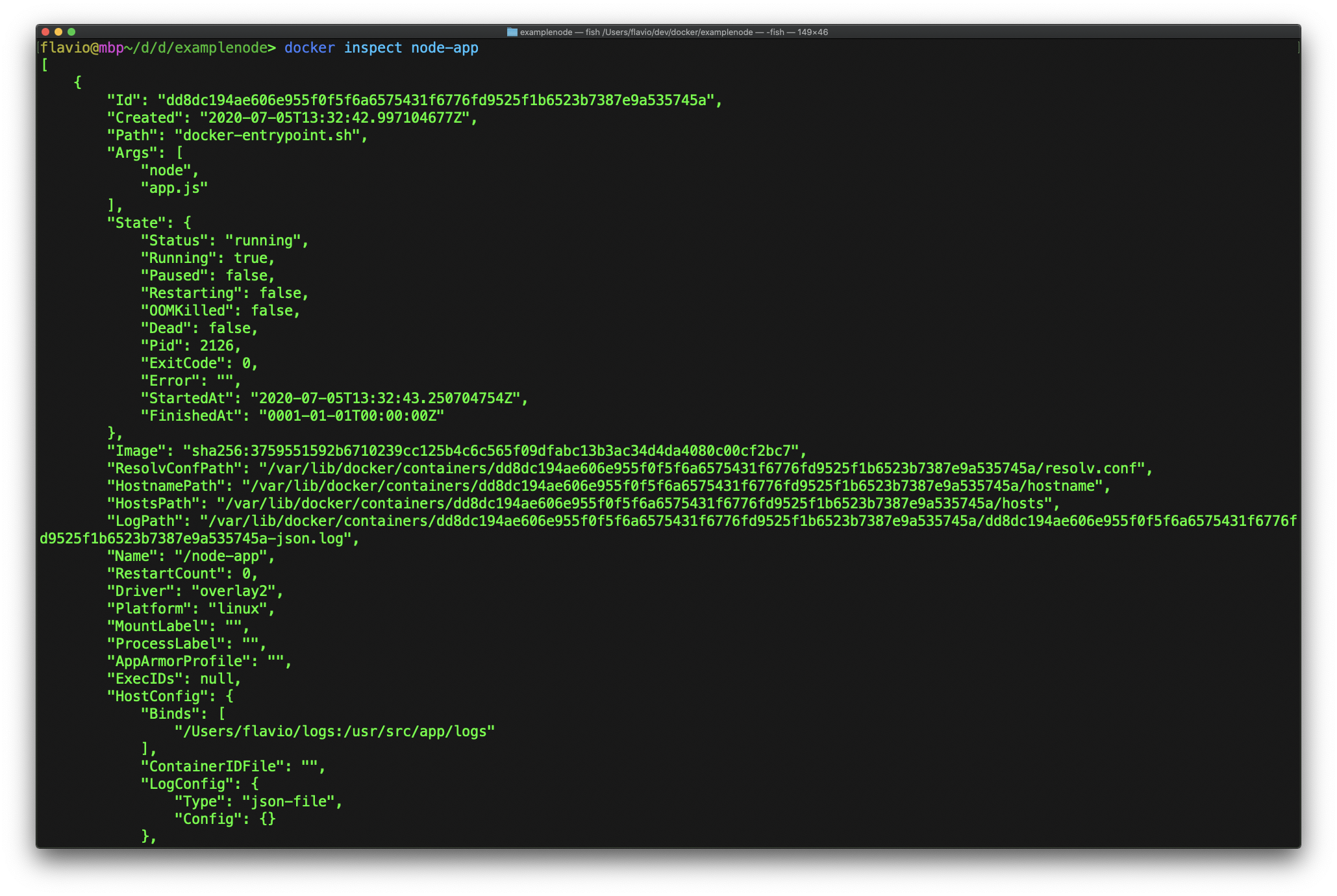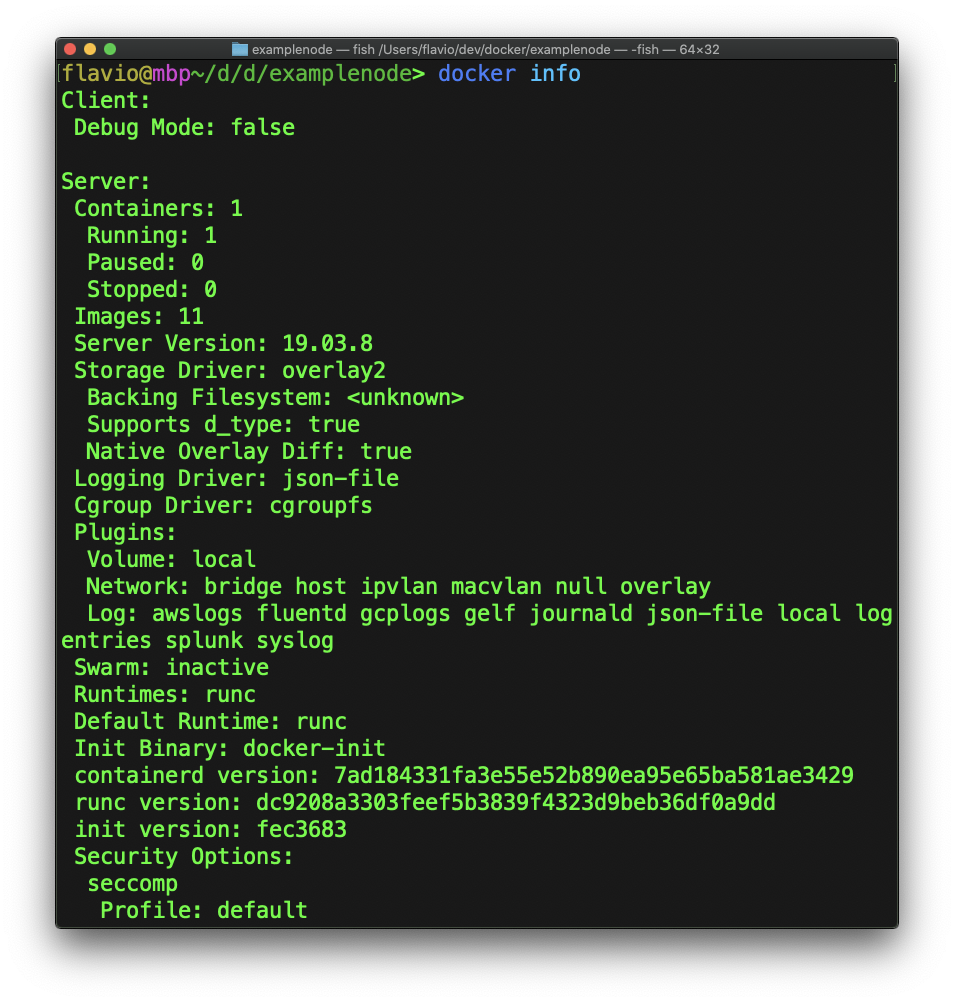Working with Docker Containers from the command line
The Docker Desktop application is awesome to work with containers locally via a graphical interface.
You are not required to use it. You can use the CLI commands.
The docker ps command lists the currently running containers:

This is the same as running
docker container ls.
In this case, container with name node-app and ID 739037a911e0 generated from the image examplenode, created 4 minutes ago, is up since 4 minutes, and the port 80 of the host machine is mapped to the container port 3000 using the TCP protocol.
When you know the contained ID, you can stop the container by running
docker container stop <ID>
Once a container is stopped, you can see it using docker container ls -a:

And you can remove it using docker container rm:
docker container rm <ID>You can inspect all the details about a container running docker inspect:

Another useful CLI command is docker info which gives you lots of information about the current state of your Docker installation, including the number of containers and images.

download all my books for free
- javascript handbook
- typescript handbook
- css handbook
- node.js handbook
- astro handbook
- html handbook
- next.js pages router handbook
- alpine.js handbook
- htmx handbook
- react handbook
- sql handbook
- git cheat sheet
- laravel handbook
- express handbook
- swift handbook
- go handbook
- php handbook
- python handbook
- cli handbook
- c handbook
subscribe to my newsletter to get them
Terms: by subscribing to the newsletter you agree the following terms and conditions and privacy policy. The aim of the newsletter is to keep you up to date about new tutorials, new book releases or courses organized by Flavio. If you wish to unsubscribe from the newsletter, you can click the unsubscribe link that's present at the bottom of each email, anytime. I will not communicate/spread/publish or otherwise give away your address. Your email address is the only personal information collected, and it's only collected for the primary purpose of keeping you informed through the newsletter. It's stored in a secure server based in the EU. You can contact Flavio by emailing flavio@flaviocopes.com. These terms and conditions are governed by the laws in force in Italy and you unconditionally submit to the jurisdiction of the courts of Italy.